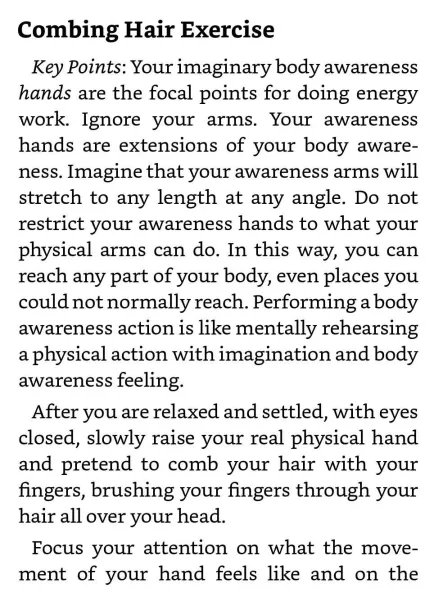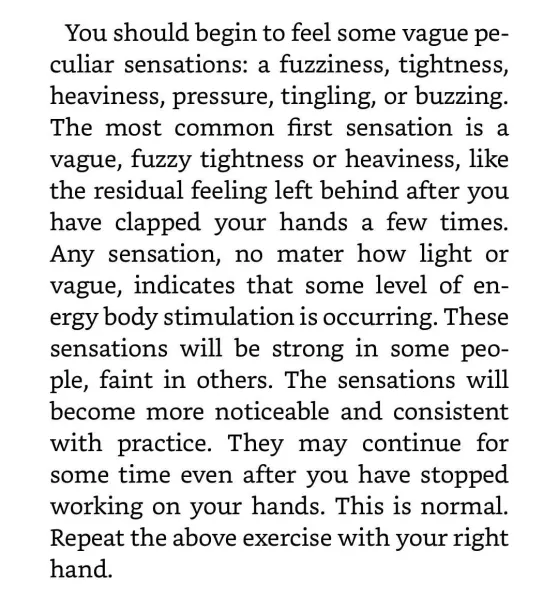Some emotion/trauma stuff claims that things like blocked emotions manifest as muscle tension, so that you are subconsciously tensing particular muscles in order to block yourself from feeling something or doing a particular thing. Now why would this be necessary?
Ideomotor theory proposes that the mental representation of an action causes the action to happen. For example, as I consciously think about writing the rest of this sentence, the thought of carrying out that action is translated to a set of motor commands to do so.
But what if my sentence is bad? Suppose that the thought occurs to me to say something offensive that will get me in trouble. One part of my brain generates this thought, a second part notices this would have a bad consequence. What can the second part do?
Morsella et al. ( philarchive.org/archive/MORHIO ) note the only way for an ideomotor intention to be blocked is to replace it with an alternative intention. The alternative intention needs to be some _physical_ action that's sent to the bodily control system to take higher priority. 

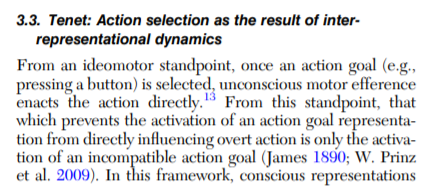
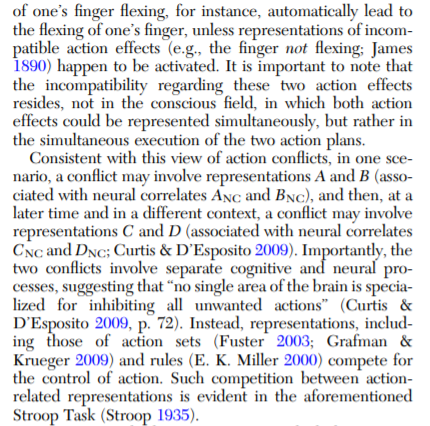
So maybe I think of some sentence, am about to start typing it... and then I realize what I'm doing and physically wince a little. _That wince has a purpose,_ as the command "wince" overrides the command "write" that would otherwise have been executed by default.
Ecker et al. ( lesswrong.com/posts/i9xyZBS3… ) give another example: Richard had the belief that expressing confidence would make him hated. So when he was about to speak up, he had negative self-talk. Inner speech involves subvocalization ( psychology.stackexchange.com/questions/9557… ): physical action.
So in Richard's case as well, he was about to do something (speaking up) that a part of his brain judged to have a bad consequence: it substituted another physical action (subvocalized mental dialogue of not being good enough to speak up), which blocked the original intention.
Morsella et al. also hypothesize that consciousness exists for representing a conflict and options for resolving it, not necessarily the _resolution_ for it, which may happen outside consciousness. 

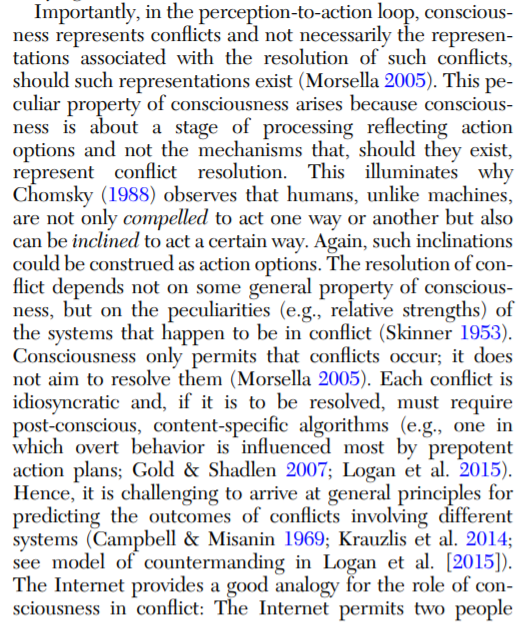

And we know in general that once a conflict has been resolved one way, one's choice can become automated enough to repeatedly go that way. First you are conflicted about something, but then you make up your mind, and on the following occasions do everything the same way.
In other words, once a resolution to a conflict has been found, it may no longer be necessary to bring the conflict into consciousness... and this may include resolutions like "I am about to say X, but then another process blocks it through Y".
So returning to the question in my original tweet: why would it be the case that specific blocked emotions or behaviors would manifest as consistently tight muscles?
Because those behaviors may be blocked exactly _through_ clenching some muscle, to create a physical action that overrides the original intention to X. And once set up, this clenching may become automatic, happening hundreds of times a day whenever you'd otherwise have done X.
Hmm, this could also explain why mental effort can feel almost physically taxing. If you need to repeatedly block intentions to shift your focus to something else...
Friend suggested: "Might be related to the antidepressant effects of strength training. If you're hitting 80%+ of maximum voluntary activation against a weight, you're pretty much forced to relax the antagonist muscles."
Huh.
Huh.
• • •
Missing some Tweet in this thread? You can try to
force a refresh


